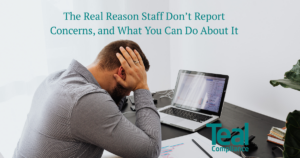The UK Information Commissioner’s Office (ICO) has recently launched a campaign to send reminders to all UK registered companies to ensure that they comply with their legal obligation to pay an annual data protection fee, where this applies. This is the start of an extensive project to ensure that the ICO fee is paid by everyone who needs to pay it.
Under the Data Protection Act 2018 organisations processing personal information are required to pay a data protection fee unless they are exempt – this fee replaces the old annual registration fee. If you are an organisation holding personal information for business purposes on any electronic device, including using CCTV for crime prevention purposes, it’s likely that you’ll need to pay the fee. The ICO maintain a public register of those registered, so your clients will be able to check whether you take your data protection obligations seriously.
The amount of the data protection fee depends on a company’s size and annual turnover. There are three tiers of fee ranging from £40 and £2,900, but for most organisations it will be £40 or £60 (you can reduce the cost by £5 if you sign up by direct debit). As it’s a statutory fee, no VAT is payable on the fee. The ICO provides a useful self-assessment tool which will calculate how much you need to pay (see self-assessment) – and is definitely worth using to ensure that you are paying the correct amount. In terms of exceptions, charities pay £40 regardless of size or turnover and public authorities only need to go by staff numbers. There are a number of exemptions. You don’t need to pay a fee if you are processing personal data only for one or more of the following purposes:
- Staff administration
- Judicial functions maintaining a public register
- Accounts and records
- Not-for-profit purposes
- Advertising, marketing and PR
- Personal, family or household affairs
- Processing personal information without an automated system such as a computer
Since introduction of the latest data protection fee in May 2018, over half a million organisations have registered with the ICO to pay it. However, between 1 July and 30 September 2019 the ICO issued 340 monetary penalties to organisations who haven’t paid the fee. You are breaking the law if, as a controller, you process personal data or are responsible for the processing of personal data, for any of the non-exempt purposes and you have either not paid a fee or not paid the correct fee.
In addition to a fine, the ICO names the majority of those failing to pay. This clearly has reputational implications for your business.
The very fact that GDPR exists at all suggests that data protection is being taken more seriously than before. Although fines tend to be the ICO’S last resort, the data protection fee is going to be vital to the ICO if it’s to function properly as whilst money received from fines is passed to the Government, the data protection fee is used by the ICO to fund its data protection work. Clearly, if organisations ignore the requirement to pay en masse, this could drive the ICO to flex its muscles by making an example of some of them.
If your fee is a renewal you should receive a payment reminder from the ICO – but don’t rely solely on this and ensure you diarise the payment date as a key date, so you don’t end up with fine which could easily have been avoided. If you don’t pay when you need to, you’ll receive a notice of intent from the ICO 14 days after expiry. You’ll then have 21 days to pay or make representations as to why you think you don’t need to. If you still don’t pay or fail to notify the ICO that you no longer need to pay, you may be issued with a fine of up to the maximum penalty of £4,350 (150% of the top tier fee) – so it’s clearly important that you pay the correct fee, if due, and on time.
Get in touch
To find out more about our data protection services, contact our experts today.




